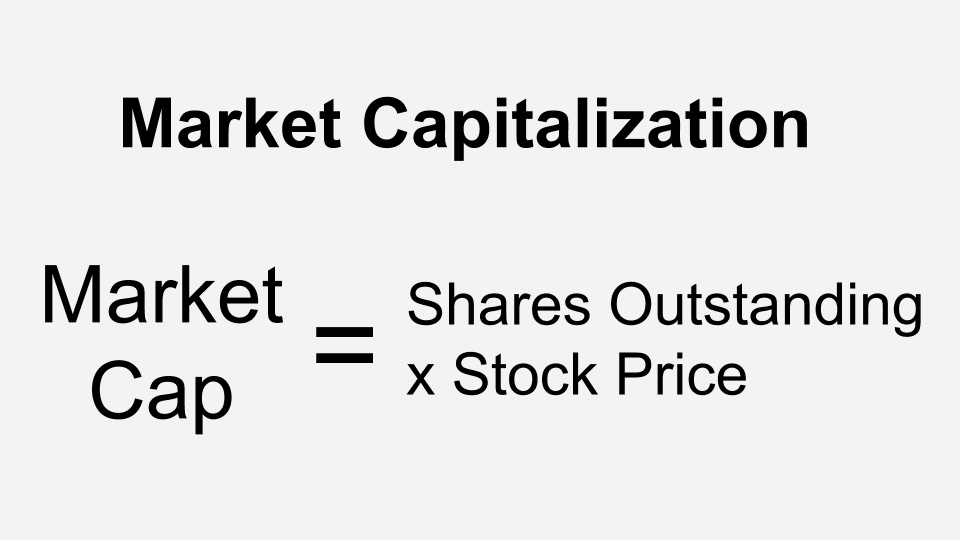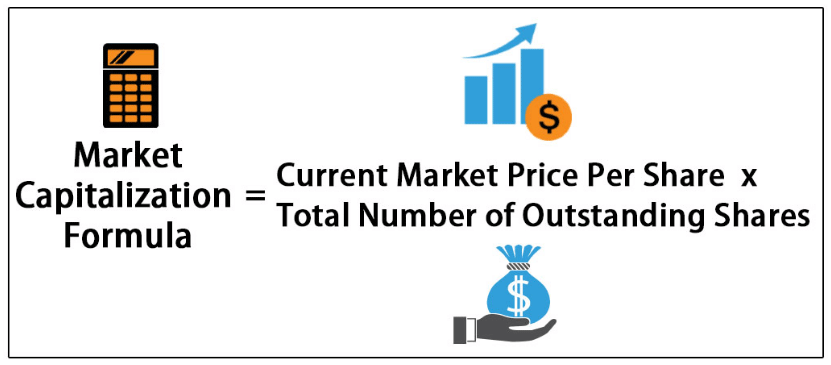Market capitalization vs. revenue: What investors should know

Delving into the world of investing, we uncover the critical comparison between market capitalization and revenue. This essential guide aims to enlighten investors on the key differences and significant impacts of these financial metrics.
Exploring the intricate relationship between a company's value and its income, we navigate through the complexities of market dynamics and investor considerations.
Market Capitalization Definition and Importance

Market capitalization, often referred to as market cap, is the total value of a company's outstanding shares of stock. It is calculated by multiplying the current stock price by the total number of outstanding shares. Market capitalization is a key metric used by investors to determine the size and value of a company in the stock market.
Importance of Market Capitalization
Market capitalization is a crucial metric for investors as it provides valuable information about a company's size, risk profile, and growth potential. Companies with larger market capitalizations are generally more stable and less volatile, making them a safer investment option.
On the other hand, smaller companies with lower market capitalizations can offer higher growth potential but also come with higher risk.
- Market capitalization helps investors identify investment opportunities based on their risk tolerance and investment goals.
- It allows investors to compare companies within the same industry or sector and make informed investment decisions.
- Market capitalization also influences the composition of stock market indices, such as the S&P 500 or the Dow Jones Industrial Average, which are used as benchmarks for the overall market performance.
Understanding Revenue in Investing
Revenue is the amount of money a company generates from its core business activities, such as sales of goods or services. It is a crucial metric in evaluating a company's financial health as it reflects the company's ability to generate income.
Significance of Revenue in Evaluating a Company
- Revenue is a key indicator of a company's growth and sustainability.
- Investors often look at revenue trends to assess the company's performance and potential for future profitability.
- High revenue can indicate a strong market presence and customer demand for the company's products or services.
- On the other hand, declining revenue may signal operational issues or a lack of competitiveness.
Impact of Revenue Growth on Investor Confidence
- Companies with consistent revenue growth tend to instill confidence in investors as it demonstrates a healthy business model.
- Investors are more likely to invest in companies with a track record of increasing revenue over time.
- Stagnant or declining revenue can lead to a decrease in investor confidence and potentially lower stock prices.
Effect of Revenue Trends on Stock Prices
- Positive revenue trends, such as strong growth or beating revenue expectations, can lead to an increase in stock prices as investors see the company as valuable.
- Conversely, negative revenue trends, such as missing revenue targets or declining sales, can cause stock prices to drop as investor sentiment weakens.
- Stock prices are often influenced by revenue reports and forecasts, making revenue a critical factor in determining stock performance.
Market Capitalization vs. Revenue
:max_bytes(150000):strip_icc()/Market-Capitalization-ba038aeebab54f03872ead839a2877a4.jpg)
Market capitalization and revenue are two key metrics used by investors to evaluate a company's financial health and performance. While both are important indicators, they serve different purposes and provide distinct insights into a company's operations.Market capitalization, often referred to as market cap, is the total value of a company's outstanding shares of stock.
It is calculated by multiplying the current share price by the total number of outstanding shares. Market cap gives investors an idea of the company's size and overall worth in the stock market.On the other hand, revenue represents the total amount of money generated by a company through its core business activities.
It is also known as sales or turnover and is typically reported on a quarterly or annual basis in financial statements. Revenue reflects the company's ability to generate income and grow its business.
Differences Between Market Capitalization and Revenue
- Market capitalization is a measure of a company's total equity value in the market, while revenue is a measure of the company's income from sales.
- Market capitalization is influenced by factors such as share price and outstanding shares, whereas revenue is influenced by the volume and value of goods or services sold.
- Market capitalization reflects investor sentiment and market expectations, while revenue reflects the company's operational performance and sales growth.
Complementing Each Other in Investment Analysis
- Market capitalization provides investors with an indication of a company's overall value and market perception, while revenue gives insights into the company's ability to generate income.
- By comparing market capitalization to revenue, investors can assess a company's valuation relative to its sales performance and industry peers.
- Investors often look at the market cap-to-revenue ratio to determine whether a company is overvalued or undervalued based on its revenue-generating capabilities.
Examples of Companies with Disproportionate Market Capitalization and Revenue
- Company A has a high market capitalization due to strong investor interest and expectations, but its revenue growth has been stagnant, leading to a high market cap-to-revenue ratio.
- Company B has a low market capitalization despite steady revenue growth, indicating that the market may be undervaluing the company's revenue-generating potential.
- Company C may have a market cap that is significantly higher or lower than its revenue would suggest, highlighting market inefficiencies or mispricing of the company's stock.
Factors Influencing Market Capitalization and Revenue
Understanding the various factors that can influence market capitalization and revenue is crucial for investors looking to make informed decisions.
Factors Affecting Market Capitalization
Market capitalization, often referred to as market cap, is influenced by a combination of internal and external factors:
- Company Performance: Strong financial performance, profitability, and growth prospects can positively impact market capitalization.
- Investor Sentiment: Market perception, investor confidence, and market trends can also affect how investors value a company.
- Industry Trends: Market cap can be influenced by industry-specific factors, such as regulatory changes, technological advancements, and competitive landscape.
External Factors Impacting Revenue Growth
Revenue growth is essential for a company's sustainability and profitability. External factors that can impact revenue include:
- Economic Conditions: Changes in the overall economy, such as GDP growth, inflation rates, and consumer confidence, can affect consumer spending and purchasing power.
- Market Competition: Competitive pressures, market saturation, and pricing strategies of rivals can impact a company's ability to generate revenue.
- Regulatory Environment: Changes in regulations, trade policies, and government interventions can have a direct impact on a company's revenue streams.
Industry-Specific Trends and Their Impact
Market capitalization and revenue can be significantly influenced by industry-specific trends:
- Technology Sector: Rapid technological advancements, innovation cycles, and disruptive technologies can lead to fluctuations in market cap and revenue for tech companies.
- Healthcare Industry: Changing healthcare policies, drug approvals, and healthcare spending trends can impact both market capitalization and revenue for healthcare companies.
- Retail Sector: Consumer preferences, e-commerce growth, and seasonal trends can affect revenue generation and market cap for retail businesses.
End of Discussion

As we conclude our discussion on market capitalization vs. revenue, it becomes evident that a deep understanding of these metrics is paramount for making informed investment decisions. By grasping the nuances of market capitalization and revenue, investors can navigate the financial landscape with confidence and foresight.
Quick FAQs
What is market capitalization?
Market capitalization refers to the total value of a company's outstanding shares of stock, calculated by multiplying the current stock price by the total number of shares.
How does revenue impact investor confidence?
Revenue growth is a key indicator of a company's financial health and potential for future success. Investors often view consistent revenue growth positively, leading to increased confidence in the company.
Can market capitalization and revenue be directly proportional?
No, market capitalization and revenue are not always directly proportional. A company with high revenue may have a lower market capitalization if investors perceive limited growth potential.

